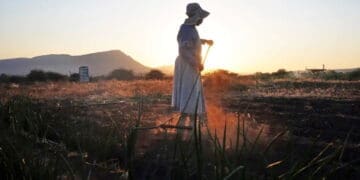Tourism Minister Patricia de Lille’s announcement of major tourism investments, including a R12 million upgrade, nearly R1 billion in infrastructure projects, and the introduction of the Electronic Travel Authorisation (ETA) system, has been widely welcomed as a boost for South Africa’s tourism sector.
However, industry voices argue that systemic barriers continue to prevent small and emerging enterprises from fully benefiting.
The initiatives, aimed at improving infrastructure and enhancing travel convenience ahead of major international events like the ICC Cricket World Cup, have sparked conversations about transformation and Inclusivity in the tourism ecosystem.
Tourism Development Specialist Dr Sisco Auala told Vutivi Business News that while the projects signal progress, meaningful change will only come when the sector reforms its underlying systems.
“Tourism SMMEs are often left out of the tourism value chain because of a historical systemic default in how we do tourism,” Auala said.
“We need to dismantle the traditional model of tourism that was birthed by the Western world, one that excludes local and emerging businesses. Without addressing this foundation, real transformation and sustainability will remain out of reach.”
Auala added that limited collaboration between established operators and small tourism enterprises continues to stifle progress.
“Big contracts are often awarded to large, established businesses because of their track records, while the requirements for SMMEs remain unrealistic,” she said. “This keeps many small tourism businesses small for life.”
According to Septi Bukula, founder of Rendzo Network Africa, based in Johannesburg, the Electronic Travel Authorisation system could help address long-standing challenges that hinder inbound business tourism.
His company specialises in hosting international business events and often faces difficulties when foreign delegates struggle to obtain visas.
“The ETA is going to be a real game changer,” Bukula said. “Delays in securing visas have cost us delegates, revenue, and opportunities. The new system will make it easier for visitors to enter the country, and that benefits the entire tourism ecosystem.”
Bukula said good infrastructure and global events have the potential to drive more inclusive growth, provided small businesses are visible in the market.
“When travellers can move around with ease, they visit more destinations and spend more widely,” he said. “But SMMEs must have visibility ahead of major events to attract international visitors while they are still planning their trips.”
As the tourism sector works to strengthen its competitiveness, industry voices agree that inclusive transformation remains the missing link. They argue that reforming the tourism model to integrate SMMEs better would not only foster innovation and resilience but also stimulate local economies and create much-needed jobs in rural and township communities.
“If we all want to eat the fruits from the tourism tree, we must first deal with the weeds in its garden,” Auala concluded.































































